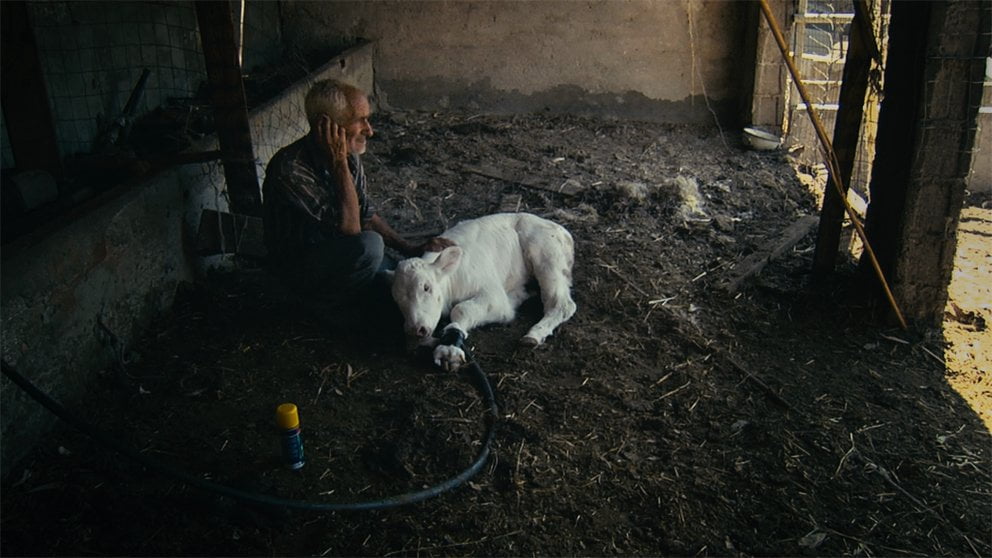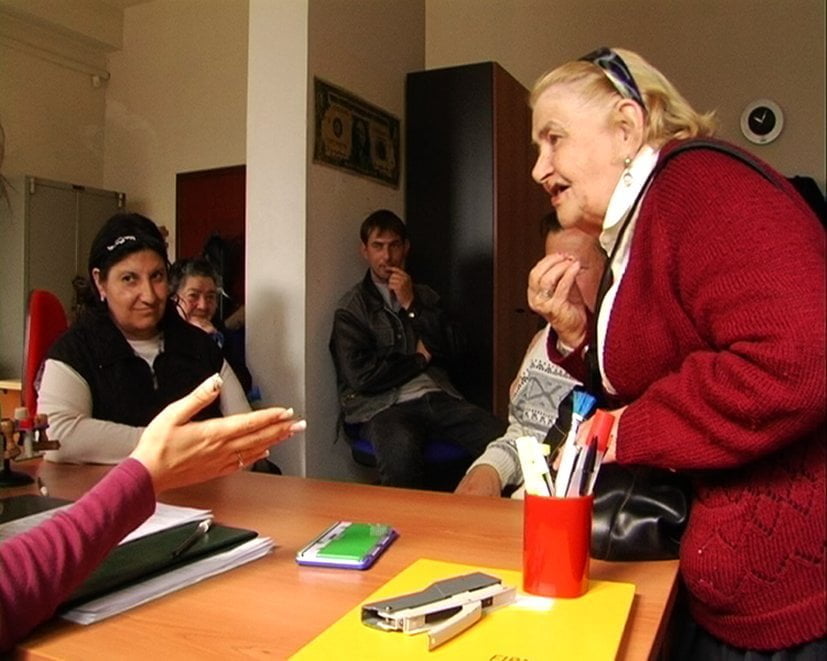Spira mirabilis
Massimo D’Anolfi, Martina Parenti
Italia / Italy 2016, DVCpro HD, 121’
La terra: le statue del Duomo di Milano sottoposte a una continua rigenerazione. L’acqua: Shin Kubota, uno scienziato cantante giapponese che studia la Turritopsis, una piccola medusa immortale. L’aria: Felix Rohner e Sabina Schärer, una coppia di musicisti inventori di strumenti/scultura in metallo. Il fuoco: Leola One Feather e Moses Brings Plenty, una donna sacra e un capo spirituale, e la loro piccola comunità lakota da secoli resistenti a una società che li vuole annientare. L’etere: Marina Vlady che, dentro un cinema fantasma, ci accompagna nel viaggio narrando L’immortale di Borges.
Earth: the statue of the Dome of Milan is subject to continuous regeneration. Water: Shin Kubota, a Japanese singer/scientist who studies Turritopsis, a small immortal Medusa. Air: Felix Rohner and Sabina Schärer, a couple of musicians who invent metal instruments and sculptures. Fire: Leola One Feather and Moses Brings Plenty, a sacred woman and a spiritual leader, and their little lakota community, resistent for centuries to a society that wants to wipe them out. Heavens: Marina Vlady, who inside a spiritual cinema,, accompanies us on a trip whilst narrating L’immortale of Borges.
fotografia / cinematographer
Massimo D’Anolfi
montaggio / editing
Massimo D’Anolfi, Martina Parenti
musica / music
Massimo Mariani
cast
Marina Vlady, Leola One Feather, Felix Rohner, Sabina Schärer, Shin Kubota, Joe, Coco, Brett Brings Plenty, Friederike Haslbeck, Moses Brings Plenty
genere / genre
Documentario / Documentary
produzione / production
Montmorency Film, Lomotion, Rai Cinema
distribuzione / distribution
I Wonder Pictures







